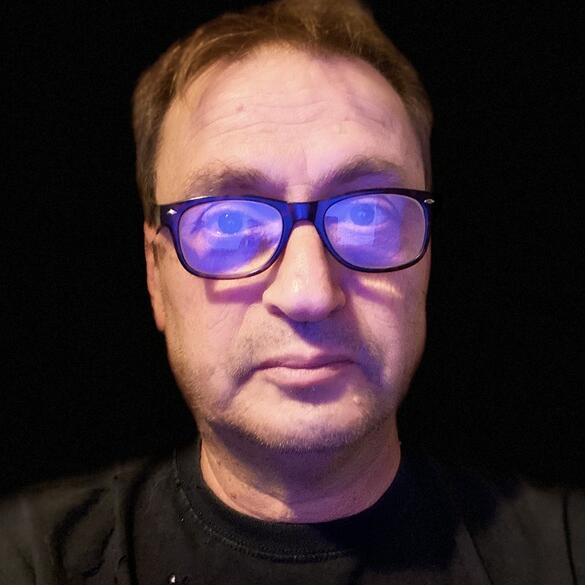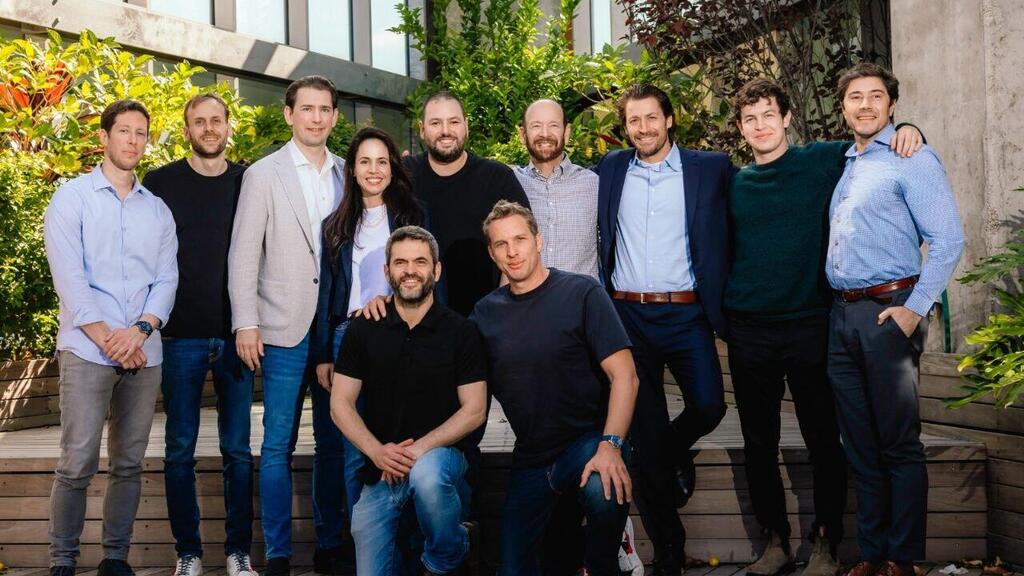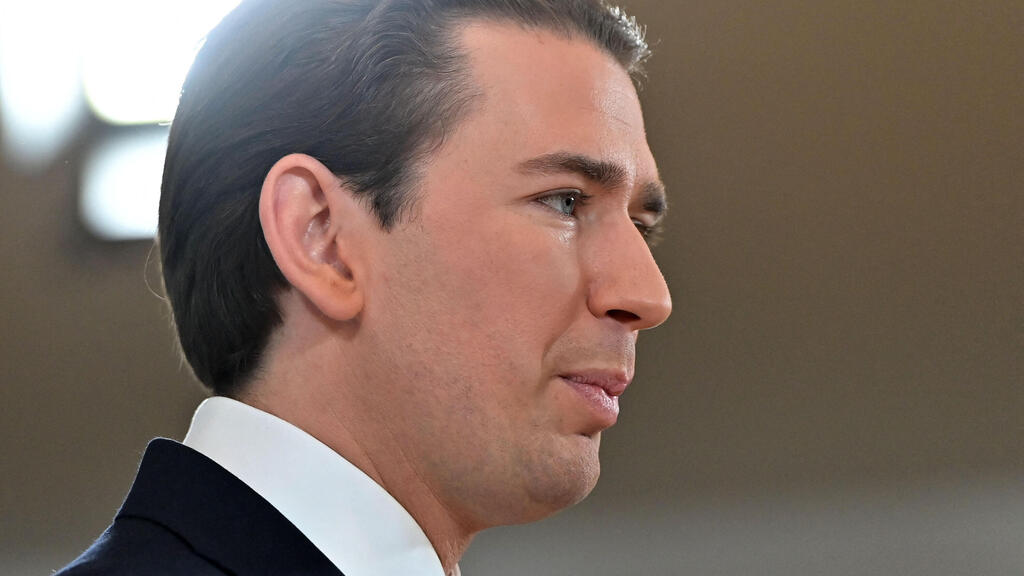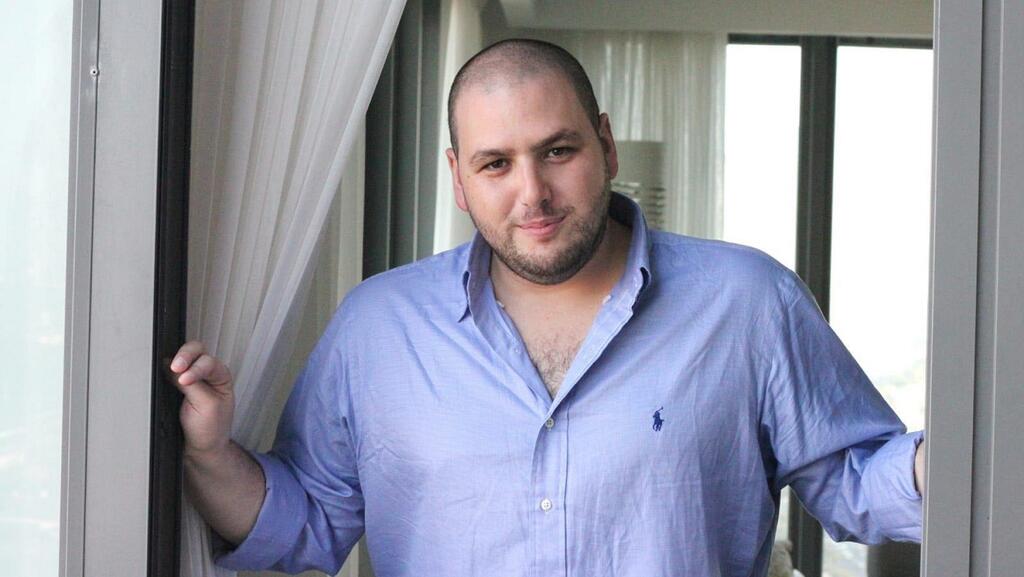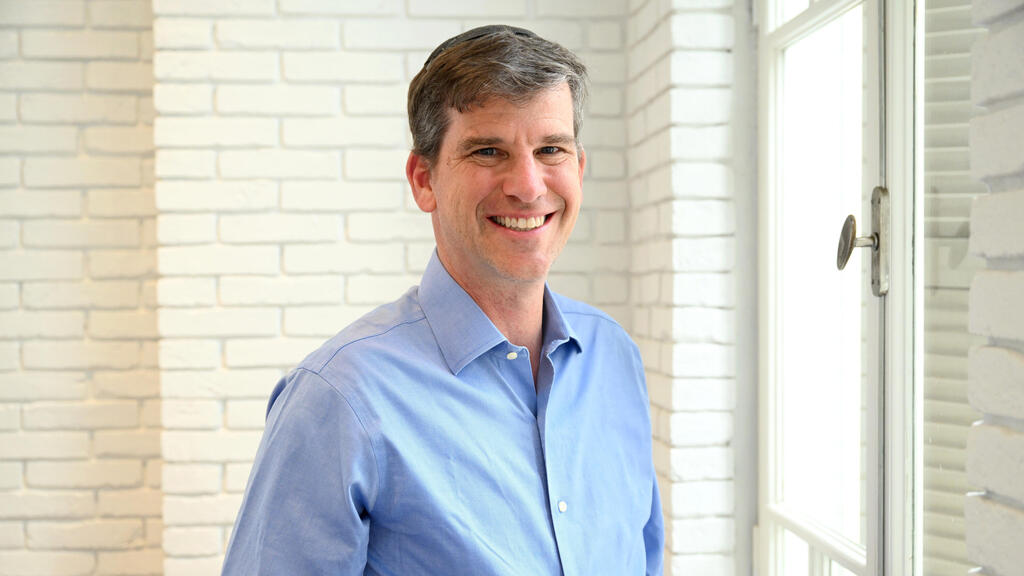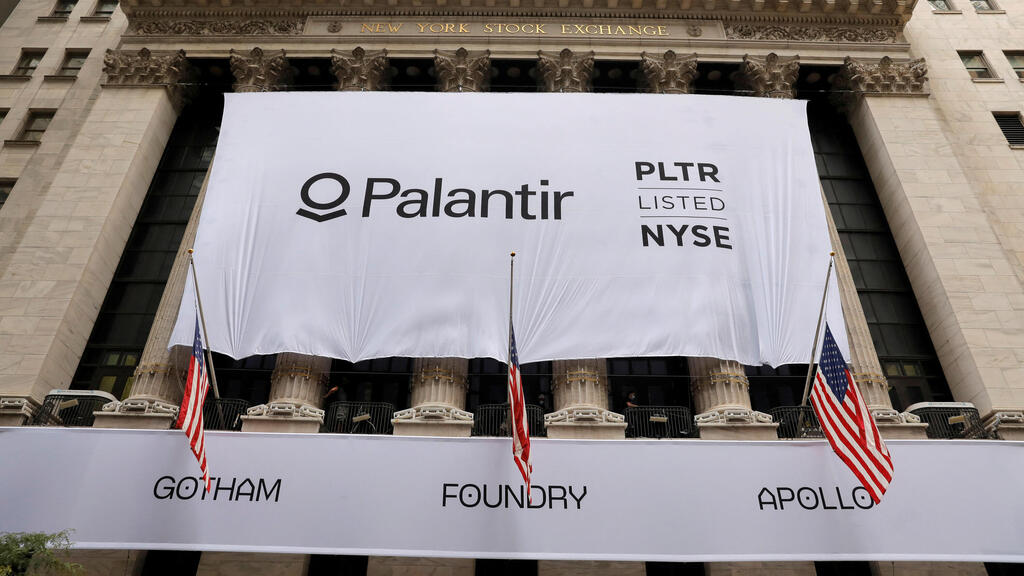The recent $32 billion acquisition of cybersecurity company Wiz by Google is thrilling for Shalev Hulio. Once the face and CEO of NSO Group, Hulio has spent the last two years at his next venture, Dream Security, which he co-founded with Sebastian Kurz, the former Austrian chancellor. In a short period, Dream has become a unicorn. At this pace, the company could match or even outdo Wizz's success.
"I think we should all applaud Wizz for an incredible achievement," says Hulio. "It's not just a milestone for an Israeli company, it's a huge global success for a cybersecurity firm. Massive congratulations to the team—what they built in five years is truly remarkable."
When do you see Dream reaching a $30 billion valuation?
"I’ll tell you what I always say and nobody believes me: valuation doesn’t matter. If someone starts a company with the sole goal of hitting a specific valuation and selling, they’ll never succeed. What we aim to do is create real value and become a significant player. Success, to me, means being deployed in 50 or 60 governments around the world, helping them stay secure through our solutions."
But at some point, a buyout offer may come. Then you’ll need to decide whether to sell or stay independent.
"My vision is never to sell this company—to remain independent for the rest of our lives. But you’re never alone, and you need to consider the needs of all stakeholders. I’m sure if you asked Assaf Rappaport (CEO of Wiz), he’d say he wanted to build the biggest company in Israel. We want the same: to build the biggest company in Israel. Not just the biggest cybersecurity company—the biggest company, period. Maybe we’ll get there, maybe not. But if someone offers you $32 billion, I don’t think anyone could say no. You can’t really refuse something like that."
The best partner I’ve ever had
Dream was founded in January 2023 by Shalev Hulio (CEO), Sebastian Kurz (Chairman) and Gil Dolev (CTO). The company develops AI-based cybersecurity solutions for governments and state-level institutions—a market known for deep pockets. Its tech is designed to fend off state-sponsored hackers and criminal attackers engaged in continuous, aggressive cyber offensives on peaceful nations.
This defense-plus-AI combination echoes the approach of U.S. company Palantir, now valued at nearly $200 billion, following major procurement deals with Western governments and militaries. Dream, while offering different technology, targets a similar space and hopes to reach comparable heights.
In February, Dream announced a surprising funding round: less than a year after raising $55 million, it secured an additional $100 million. More notably, the round valued the company at $1.1 billion—making it a unicorn in under two years. That pace of growth mirrors Wizz’s sprint from founding to exit in just five years.
Whether it's Wizz or Palantir, Dream could well become the next great Israeli success story
Pairing a gritty Israeli technologist with a polished Austrian politician may not seem like a natural fit. But Hulio and Kurz have more in common than it appears. At NSO, Hulio sold to governments and law enforcement agencies, many in Europe. Kurz, as Austria’s chancellor, made decisions involving surveillance. Both are associated with right-wing politics, and this perhaps explains the involvement of one of their earliest investors, Dovi Frances, Founder and CEO of Group 11, who led both the seed and Series A rounds alongside Michael Eisenberg of Aleph. Frances, known for his support of Donald Trump and his close ties with Israeli Prime Minister Benjamin Netanyahu, brought a network of connections to the table.
During an interview in Dream’s new Tel Aviv headquarters—two sprawling floors in a sleek glass tower—their dynamic is clear: mutual admiration and chemistry. Hulio recalls, “We met by chance, and there was an immediate click.” Kurz adds, “I was looking to start something new and visited Tel Aviv. A friend connected me to Shalev. I asked him, ‘Are you here to pick me up?’ and he said, ‘Yeah, I’m your babysitter now.’”
Though Kurz is now familiar with Israeli humor, he wasn’t sure what to make of it at first. “Honestly, I didn’t quite know what his job was other than driving me around. But the meetings were amazing. Everyone knew him, and I really enjoyed his company. Of course, I knew NSO and Pegasus and was deeply impressed. Like he said, we clicked. I told him, ‘What I’d really love to do is start something together. But not offensive cyber because I may want to return to politics someday.’”
That was during Hulio’s final weeks at NSO. Later, he called Kurz: “You still interested?” Kurz jumped on a plane and flew back. “It took us some time to figure out the direction,” he says, “but we knew we wanted to combine Shalev’s expertise—and that of the people he’d worked with—with AI. At first, it was just an idea. But things moved fast.”
Did you plan on becoming a unicorn in two years?
“I didn’t expect we’d become a unicorn so quickly,” says Kurz, “but one thing I knew for sure—Shalev is a genius.”
Shalev, you’re getting a lot of compliments here
Hulio laughs. “Well, I do hold shares in him... But seriously, Sebastian is a rock star. I’ve done sales campaigns and startups before, but he’s by far the best partner I’ve ever had. If he’d chosen tech over politics, if he’d become a founder instead of a chancellor, he’d be up there with Elon Musk and Mark Zuckerberg. I’m not kidding—he has a rare talent.”
That mutual admiration seems to be working. Within a few months, Dream sold major systems to three governments. The combination of a former NSO CEO—well-known in government circles—and a former chancellor who understands how governments work and knows world leaders personally seems to be paying off. Within its first year of sales, Dream logged $130 million in future orders, including $44 million in expected revenue for 2024. “I think this year we’ll more than double that,” Hulio predicts.
Would you say you're already a success story?
Hulio: “I wouldn’t say we’re a success story—not yet. We had a great first year, and year two is going well, but we still have a lot to prove before we can say we’ve made it.”
A friend of Israel, embroiled in scandal
Sebastian Kurz was born in 1986 and became Austria’s chancellor in 2017, making him the youngest prime minister in the country’s history. Prior to that, he served as the foreign minister for four years. In 2019, he stepped down, only to return to office with a major win the following year. He resigned again in 2021 amid corruption allegations involving senior officials. Kurz was later convicted of giving false testimony to a parliamentary inquiry, a conviction he is currently appealing.
Despite this, Kurz has always been considered a friend of Israel. After decades of cool relations, including the era of Jewish chancellor Bruno Kreisky, Kurz was a vocal supporter of Israel in its fight against Hamas. He also championed legislation granting citizenship to descendants of Holocaust survivors. Since retiring from politics, he divides his time between Austria, Israel, the Gulf, and the U.S.
“After leaving politics, I did what many former politicians do—I became a consultant,” he says. He served as global strategist for Thiel Capital, the investment firm of billionaire Peter Thiel, a PayPal co-founder, Palantir chairman, and prominent Trump supporter. “Working with him made me realize how AI will fundamentally reshape the world. Eventually, I felt ready to build something of my own.”
There are clear parallels between Dream and Thiel’s Palantir, which earns much of its revenue from government contracts. Did your connection to Thiel help you focus on this market?
“I know Alex Karp (Palantir’s CEO) well, but we have no connection to the company. My time working with Peter Thiel helped me understand how promising this space is—but that’s where it ends.”
Has being a former prime minister made it easier for you as a businessman?
“Honestly, I really enjoy it. I’m using some of the skills I developed in politics and learning new ones. Some investors or clients know me from before, some from the media, and others not at all. I hadn’t really thought about it, but it’s a good question.”
Instead of press conferences, Hulio found himself in army fatigues
Hulio’s final days at NSO were turbulent. As one of the company’s founders and its CEO since 2010, he had become the face of a company known for powerful surveillance tools. While Pegasus was originally designed to help governments catch criminals, NSO became a symbol of digital authoritarianism—accused of aiding dictators in targeting dissidents and journalists. Despite controversy, the company generated up to $300 million annually at its peak.
But 2021 brought major setbacks: lawsuits from Apple and Meta, a U.S. ban on its products, and strict new export rules from Israel’s Defense Ministry. NSO’s attempts to sell to Integrity Fund and later L3 fell through. Layoffs followed. Hulio resigned in 2022 amid shareholder disputes.
Now, he says the transition to Dream has brought peace. “It’s a relief. Life is quieter now. I’ve always been on the ‘good side,’ but now it’s less controversial. Both offensive and defensive cyber help national security—one by stopping threats, the other by catching them. The mission’s the same; the method is different.”
Starting Dream wasn’t easy. “The first six months were tough,” Hulio recalls. “Sebastian had just left the chancellery. I’d stepped down from a company with 1,000 employees. We were suddenly in a tiny office with four people and nothing to show yet.”
Kurz adds, “You want to push forward, but there’s no one to push.”
Hulio: “So we pushed the team hard to get a product out, because we both really wanted to go out into the world and say: ‘We’re back—here’s what we’ve built.’”
They planned a product launch in late November 2023—but then came October 7, and Hulio was called up for reserve duty.
“I remember Sebastian was anxious. He said, ‘Shalev, we started this company together. I know you’re in the army, but the moment you’re back, please return.”
The first funding round led by Aleph’s Michael Eisenberg and Dovi Frances was signed while Hulio was still on duty. The investors came to the Gaza border to sign in person, an event documented on YouTube.
Dream’s initial product was a cybersecurity system tailored for industrial and critical infrastructure environments like ports and power stations, known as OT systems. But as the platform evolved, they pivoted. “We realized that out of 3,000 cybersecurity companies, not a single one focuses on national-level government security—and that’s shocking, because that’s where the biggest threats lie,” says Hulio.
So, Dream refocused on massive, distributed government IT systems with many vulnerabilities. Their solution? A proprietary large language model (LLM) for cybersecurity, which they call a Cyber Language Model. It maps the client’s systems, identifies weaknesses, and neutralizes threats—all through AI trained on security-relevant text data.
Even before Dream was officially incorporated, it raised $20 million from early investors including Eddy Shalev (also the first investor in NSO), Noam Lanir, Shalom McKenzie, and cybersecurity entrepreneurs Yevgeny Dibrov, Nadir Yezreel and Asaf Hefetz.
In the second round, Frances and Aleph invested again, joined by Wizz’s Assaf Rappaport. In the third round, Bain Capital led the investment, with additional backing from James Rothschild’s Tru Arrow and Brad Allen’s Tau Capital of Abu Dhabi.
As a result, Dream’s board now includes Enrique Salem, a Bain partner who led the round and formerly served as Symantec’s CEO and advisor to President Obama. Also on the board is Maj. Gen. (res.) Shlomo Yanai, former CEO of Teva and now a board member at Philip Morris.
Get the Ynetnews app on your smartphone: Google Play: https://bit.ly/4eJ37pE | Apple App Store: https://bit.ly/3ZL7iNv
Among Dream’s clients—a European national cyber authority, a justice ministry in an Asian country, and an Israeli platform provider for ports and refineries. The next target markets: the U.S. and Latin America. With clients onboard, an expanded AI backbone thanks to fresh capital, and a growing U.S. presence, Dream is gearing up for the next phase.
Is the U.S. market the holy grail of cybersecurity?
“It’s not just us saying it—even former FBI Director Christopher Wray told Congress that the No. 1 strategic threat to the U.S. is a cyberattack on critical infrastructure by China. You’ll see more and more of these attacks because cyberwarfare isn’t yet considered an act of war. Governments and bad actors know this, so they exploit it. But I’m telling you: war will one day start with a malicious cyberattack. Mark my words—it will happen.”


